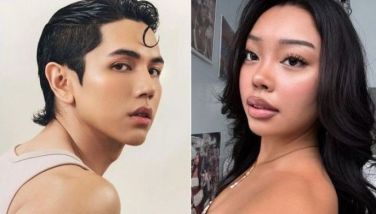Getting things done
May 15, 2005 | 12:00am
 The Seven Samurai is almost three hours long. It’s in black and white and there are no special effects. And you have to read sub-titles. These are just some of the reasons why this 50-year-old film (plus the fact that it is 50 years old) should not endure, but it does. In a recent Saturday evening showing at UP, it drew a fairly respectable crowd. This is quite amazing, considering that several Oscar contenders were having their regular run in commercial theaters at the same time.
The Seven Samurai is almost three hours long. It’s in black and white and there are no special effects. And you have to read sub-titles. These are just some of the reasons why this 50-year-old film (plus the fact that it is 50 years old) should not endure, but it does. In a recent Saturday evening showing at UP, it drew a fairly respectable crowd. This is quite amazing, considering that several Oscar contenders were having their regular run in commercial theaters at the same time.
The story is deceptively simple: a village of farmers, besieged by armed bandits, hires seven samurai (six, actually. Mifune Toshiro’s character only purported to be a samurai) to protect them. During the growing season, the samurai train the farmers and fortify their village. Through the concerted efforts of both amateurs and professionals, the bandits are decimated. End of story.
Why should anyone watch this film? Why should you?
Herein lies the justification for the film’s "master" tag. On the surface, its director, Kurosawa Akira, took the sensibilities of the American western and applied it to medieval Japan. If you like cowboy movies, you will probably like this.
It has duels and skirmishes among highly-skilled warriors, as well as all-out war between hastily-trained farmers and professional bandits. It has action galore minus the exaggerated blood spurts that characterized later samurai films. And it works on so many other levels.
For one thing, the premise is a little far-fetched even for the players. The caste system in Japan clearly ranks samurai over farmers. When the farmers first went out recruiting, potential candidates physically beat them due to the outrageousness of their proposal. Samurai work for farmers? Absurd!
This premise, however, provided the film’s layer of social commentary. At the time, samurai were becoming increasingly useless as the country moved towards peace. Whereas armies of them used to be supported by local warlords, most of the swordsmen depicted in Seven Samurai were actually ronin or master-less samurai. Some of these ronin became mercenaries, as were the heroes of the film, but some became marauding brigands. Mifune’s character, the samurai-wannabe, makes this point in one of his many soliloquies, "that samurai were both the problem and the solution."
If you are a student of history, or interested in the impact of moving from a feudal society to a democratic one, this film is worth a look.
Seven Samurai may be the best film about management ever. You should see it if you have to administer people and resources, as maybe half the film is about preparing for war. Of course, the specifics will be most interesting to military buffs, but the business principles used are sound: hire for attitude, not skill; provide on-the-job training and motivate your work force; fortify your weak areas and don’t be afraid to take a few losses in exchange for eventual success.
In this aspect, Seven Samurai serves as a powerful metaphor for all Japan. At the time it was produced, not 10 years had passed since Hirohito surrendered to MacArthur. And yet Kurosawa alone had already directed 14 films including Rashomon, that re-invented film technique through the use of multiple points of view. In a way, Seven Samurai is Kurosawa’s manifesto on how to get things done.
If you are just a plain-and-simple film buff, should see Seven Samurai. But I guess you already know that. For one thing, it is included in nearly any list of the best films of all time. This, despite the fact that it is, for all intents and purposes, a "formula" movie.
The characters are stereotypical (almost Shakespearean), the plot elements conventional (action, romance, even a musical number in the end), and the story telling straightforward (none of the complexities of the international film festival favorite, Rashomon). It was a box-office hit despite its length and its success made Hollywood produce its own version, The Magnificent Seven, featuring some of the most manly leading men at that time (Yul Brynner, Charles Bronson, James Coburn and Steve McQueen). The Magnificent Seven was also an unqualified success and worth a look, if only to compare with the original. But, no, it was actually a very good film. So successful was it that it spawned a sequel.
In Seven Samurai, Kurosawa strengthened his use of stylistic elements that would later be recognized as his own: the sweeping scene composition, the juxtaposition of exquisite sweetness with horrific cruelty, stylized violence, the epic scope. He would go on to direct other epics (such as Throne of Blood, Kagemusha and Ran), in color, no less, but Seven Samurai is memorable because it was the first.
BrandSpace Articles
<
>
- Latest
- Trending
Trending
Latest
Trending
Latest
Recommended
December 26, 2024 - 12:00am















 Partner
Partner












